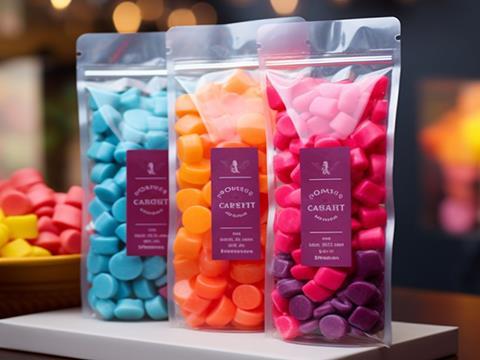
Two new processing aids have been designed by Tosaf for the extrusion of fluoroelastomer-free polyolefins – reportedly unlocking the creation of PFAS-free, certified food-safe plastic films.
Said to meet EFSA and FDA requirements for food-contact materials, the materials are hoped to replace conventional materials containing PFAS substances in a range of applications. Tosaf emphasizes that its AP9709PE EU additive is designed to improve the rheological properties of a pack, while AP9711PE EU enhances clarity, haze, and other visual features.
The company has conducted laboratory tests in which it compared the processing of a metallocene PE-LLD with those of compounds based on it; one contained AP5645PE EU, Tosaf’s standard fluoroelastomer-based processing aid, while the others contained the PFAS-free products.
According to the results, flow behaviour in the capillary rheometer and the pressure reduction in the extruder die was mostly consistent. Light transmission, haze, and clarity were said to improve slightly in the PFAS-free solutions in comparison with the pure PE-LLD and the compound; and the coefficient of friction was said to show a ‘negligibly lower value’ for the film produced with the PFAS-free solution.
Among potential customer applications are a 5-layer coex-line using 1% of the AP9709PE EU processing aid in the outer layer, Tosaf suggests. This is thought to facilitate a melt temperature that is between 5°C and 10°C lower than conventional solutions, as well as a reduced frequency of melt fracture and an improvement in such optical properties as haze.
The company adds that the resultant films can be easily printed, sealed, and laminated.
“This and other customer data for single and multilayer film extrusion consistently confirm the results of our extensive laboratory testing,” says Dr. Evgeni Zelikman, chief innovation scientist at Tosaf. “Tosaf has once again demonstrated that its expertise, combined with its state-of-the-art research, development and testing facilities, can deliver solutions that the market is looking for, but which were previously considered unthinkable.
“Another particularly important factor for us is the problem-free behaviour of PFAS-free mono-material PE films in recycling. Our application engineers support manufacturers worldwide in optimizing their production processes for the use of these alternative solutions.”
In a related development, BASF previously unveiled what was thought to be the industry’s first biomass balance offerings for plastic additives in a bid to replace fossil feedstock with renewable alternatives.
Meanwhile, BioPowder is providing additives made from olive stone powders; these can be applied to a range of packaging solutions, including transparent films, solid containers, biobased adhesives, and barrier coatings.
If you liked this article, you might also enjoy:
The Lidl approach to packaging sustainability
How did Brazil achieve its 100% aluminium can recycling rate – and can it be replicated in the EU?
Experts have their say on the EU’s Packaging and Packaging Waste Directive revisions
A deep dive into the most important packaging sustainability trends and solutions















No comments yet